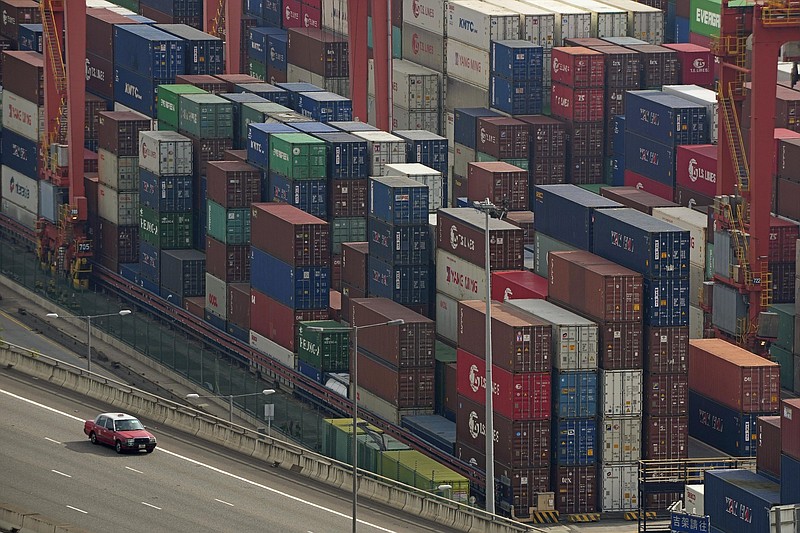WASHINGTON -- The United States has accused China of failing to meet its commitments to the World Trade Organization and says it is exploring new ways to combat aggressive Chinese trade practices.
In its annual report on Chinese compliance with the organization's rules, the Office of the U.S. Trade Representative said Wednesday that China isn't keeping the promises it made to open its markets to foreign competition when it joined the 164-country Geneva-based agency in 2001.
"China has instead retained and expanded its state-led, non-market approach to the economy and trade," said U.S. Trade Representative Katherine Tai. "China's policies and practices challenge the premise of the WTO's rules and cause serious harm to workers and businesses around the world."
Among other things, the United States repeated long-standing accusations that China uses subsidies and regulations to favor its own companies at the expense of foreign competitors; floods world markets with cheap steel, aluminum and other products; and forces companies in the U.S. and other countries to hand over prized technology as the price of access to Chinese markets.
The U.S. report said: "China's leadership appears confident in its state-led, non-market approach to the economy and trade, and feels no need to conform to global norms."
The Biden administration said its patience with China is wearing thin, but it has not yet clarified what action, if any, it will take in response.
The U.S. trade office said it is continuing to talk to China about "obtaining real change in its economic and trade regime." And it is working with allies -- and through the World Trade Organization -- to put pressure on the Chinese government. Without offering specifics, the report said the U.S. is also exploring new ways "to use domestic trade tools strategically as needed in order to achieve a more level playing field with China for U.S. workers and businesses."
Voicing similar complaints about China, President Donald Trump imposed taxes on about $360 billion worth of Chinese imports to the United States -- tariffs the Biden administration is still enforcing.
To reduce tensions, the U.S. and China reached a so-called Phase 1 trade agreement in January 2020. Among other things, the Chinese agreed to step up purchases of U.S. farm exports -- benefiting Trump supporters in the American heartland -- but left many thornier issues unresolved.
But Chad Bown of the Peterson Institute for International Trade calculated in a report last week that China has bought only 57% of U.S. exports it had to committed to purchase.
White House press secretary Jen Psaki said Wednesday that the U.S. trade office is making a "concerted effort" to get China to live up to the Phase 1 purchase agreements.
"The fact that they have not met those illustrates the limitations of the framework we inherited," she said.
The report echoed many of the criticisms of China issued under the prior administration, including spelling out the World Trade Organization's shortcomings in disciplining China's trade violations and calling for measures to take on China outside the organization.
But the report also appeared to take issue with the Trump administration's attempt to decouple from China, arguing that the United States needed to invest in American workers and infrastructure to compete with China in an integrated global economy.
"We cannot build a wall between the United States and China and assume that it will address the problems posed by China," the report said.
Beyond efforts at the WTO, the United States was pursuing several strategies to hold China to account, the report said. They included bilateral dialogues with China, including over its progress toward the commitments of the 2020 trade deal; cooperation with allies like Japan and Europe; and efforts to repurpose and expand domestic trade tools, like using tariffs to encourage companies to reduce their carbon emissions.
Information for this article was contributed by Paul Wiseman and Chris Megarian of The Associated Press; and by Ana Swanson of The New York Times, .
